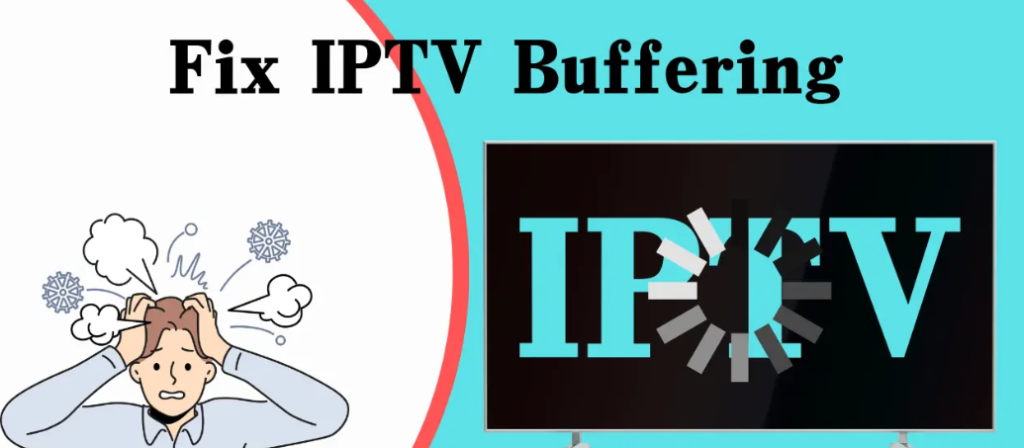In today’s digital age, IPTV (Internet Protocol Television) has revolutionized how we consume television and entertainment. Offering flexibility, convenience, and a vast array of channels, IPTV is increasingly becoming the preferred choice for viewers worldwide. However, one common issue that can mar the IPTV experience is buffering. Nothing is more frustrating than settling in to watch your favorite show or live sports event only to be interrupted by endless buffering on IPTV. Understanding why buffering happens and how to fix it can make a significant difference in your viewing experience.
What Causes Buffering on IPTV?
Buffering on IPTV occurs when the streaming content gets interrupted due to slow data transfer rates, leading to a pause in playback. Several factors contribute to this problem, and identifying the root cause is essential for finding a solution. Here are some common reasons why buffering on IPTV might occur:
- Slow Internet Connection: One of the most frequent causes of buffering on IPTV is a slow or unstable internet connection. If your internet speed is too low, the IPTV service cannot download the data quickly enough to maintain a smooth playback, leading to buffering.
- High Network Traffic: During peak hours, such as evenings and weekends, many users might be streaming content simultaneously, leading to network congestion. This congestion can cause buffering on IPTV services as the available bandwidth gets stretched thin.
- ISP Throttling: Some Internet Service Providers (ISPs) may throttle, or intentionally slow down, your internet connection if they detect high-bandwidth activities like streaming. ISP throttling can severely affect IPTV streaming quality, causing frequent buffering.
- Outdated or Overloaded Device: Using an old or underpowered device to stream IPTV can also result in buffering. Devices with outdated hardware or software may struggle to process high-definition video streams, causing delays and interruptions.
- Server Issues: Sometimes, the problem isn’t on your end. Buffering on IPTV can occur if the IPTV service provider’s servers are overloaded or experiencing technical difficulties. If too many users are accessing the server at the same time, it can lead to buffering.
- Network Interference: Interference from other electronic devices or poor Wi-Fi signals can also cause buffering. Physical obstructions, such as walls or distance from the router, can weaken your internet signal, leading to interruptions in your IPTV stream.
How to Fix Buffering on IPTV
Now that we understand the common causes of buffering on IPTV, let’s look at practical solutions to fix it and improve your streaming experience.
- Check Your Internet Speed: The first step in fixing buffering on IPTV is to ensure that your internet connection is fast enough for streaming. You can check your internet speed using online speed tests. For HD streaming, a minimum speed of 10 Mbps is recommended, while 4K streaming may require at least 25 Mbps. If your speed is lower than required, consider upgrading your internet plan.
- Reduce Network Traffic: Reducing the number of devices connected to your network can help alleviate buffering. If multiple devices are using the internet simultaneously, try disconnecting those that aren’t in use or limiting bandwidth-hogging activities like large downloads or other streams.
- Use a Wired Connection: Switching from a wireless to a wired connection can significantly reduce buffering on IPTV. Ethernet connections are generally more stable and provide faster data transfer rates than Wi-Fi, reducing the likelihood of buffering due to poor signal strength.
- Invest in a Good VPN: If ISP throttling is causing buffering on your IPTV, using a VPN (Virtual Private Network) can help. A good VPN masks your online activities from your ISP, preventing them from detecting your streaming and slowing down your connection.
- Optimize Your Device: Ensure your streaming device is up to date. Update your device’s software and apps regularly to benefit from performance improvements and bug fixes. Additionally, clear cache and unwanted files to free up resources, which can enhance the performance of your device and reduce buffering on IPTV.
- Adjust IPTV Streaming Settings: Lowering the streaming quality in your IPTV app settings can help reduce buffering. Although this may result in slightly lower video quality, it can provide a smoother viewing experience if your internet connection cannot handle higher resolutions.
- Restart Your Router and Device: Sometimes, a simple restart can solve buffering issues. Restarting your router and the device you’re using for IPTV can clear temporary glitches and refresh the network connection, potentially reducing buffering.
- Switch Servers or Providers: If your IPTV service continues to buffer despite trying all the above solutions, the issue might lie with your IPTV provider’s servers. Consider switching to a different server within the app or trying a different IPTV provider that offers more stable streaming.
- Improve Wi-Fi Signal: If a wired connection isn’t an option, consider improving your Wi-Fi signal. Position your router in a central location, away from physical obstructions, and consider using a Wi-Fi extender or mesh network system to boost the signal strength in areas with weak coverage.
Conclusion
Buffering on IPTV can be a frustrating experience, but it is not an insurmountable problem. By understanding the causes and implementing the right solutions, you can significantly reduce buffering and enjoy a smooth, uninterrupted viewing experience. Whether it’s optimizing your internet connection, upgrading your device, or choosing the right IPTV service provider, taking proactive steps will enhance your IPTV experience. Remember, the key to fixing buffering on IPTV lies in identifying the root cause and applying the appropriate remedy. Happy streaming!

